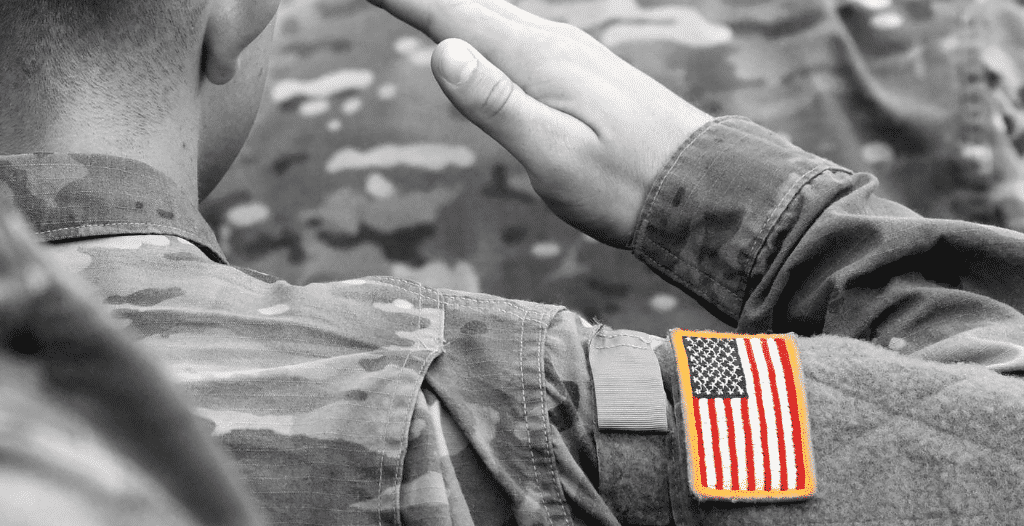8 Things all Veterans Need to Know About PTSD Defense in Court

Right Law Group helps Veterans and Military members fight and defend against criminal charges.
If you are looking for a VA lawyer to discuss your benefits, please visit Vetus Legal LLC.
If you are a veteran who has recently been charged with a crime and has previously been diagnosed with PTSD, the state of Colorado allows your case to be tried differently than other criminal cases. In many instances, you can have your PTSD defense case heard by the Veteran Trauma Court in Colorado.
The Veterans Trauma Court is a specialty court system that is dedicated to eligible military members who have been charged with certain crimes. If you have recently been charged with a crime, here is everything that you need to know about how your PTSD diagnosis could affect the defense in your case.
1. What is the Veterans Trauma Court?
According to the Colorado Judicial Branch, “The Veterans Trauma Court (VTC) is a state and grant-funded program that provides an alternative to incarceration for U.S. military veterans and active-duty military personnel with trauma spectrum disorders and/or substance abuse issues who have proven to be high risk and high need.”
At VTC, military veterans that are charged with a crime can seek treatment for their mental illness or drug addiction problems instead of going to jail.
2. What Does a VTC Treatment Plan Consist Of?
The treatment plan can vary from person to person. Every person who participates in VTC will have a veterans treatment court team that will consist of a judicial officer, a coordinator, a treatment provider, a probation/case manager, Veterans Justice Outreach representative, law enforcement, peer mentor, the defense lawyer, and the prosecutor. The members of the veterans’ treatment court team will collaborate and come up with an appropriate treatment plan that is suitable for the defendant.
Some of the treatment options may include:
- Group Counseling
- Individual Counseling
- Veteran-Specific Treatment through the Department of Veterans Affairs
- Outpatient treatment
- Residential Treatment
- Trauma-Informed Care
- Parenting Classes
- Anger Management
This is not an exhaustive list of options. You could have different treatment options if the court feels that it would be beneficial to you.
Judge David Shakes, who oversees the VTC, once illustrated just how different this court system is from other court systems: “This is a treatment court,” Judge Shakes said. “We’re all about treatment, this is different than being in the regular court system, and the people in the room are all committed to your rehabilitation.”
3. What Are the Other Benefits of Veterans Trauma Court?
In addition to potentially keeping you out of jail and offering you an extensive amount of rehabilitation, the VTC can help you in other ways. They have the ability to connect you with employment resources, using options, peer support, and other educational opportunities.
4. What are Some of the Eligibility Requirements for VTC in Colorado?
You may be eligible for VTC if you have served in the military and been diagnosed with PTSD. Also, if you have been charged with a lower-level felony, you may be eligible for VTC.
5. What are Some of the Factors that May Disqualify Me From Participating in VTC?
Being charged with some high-level or violent crimes may cause you to not be eligible for VTC. Some of the crimes that may disqualify you from participating in VTC could include:
- Felony Child Abuse Crimes
- Sex Crimes
- Domestic Violence Crimes that involve stalking or strangulation
- Abuse with a Firearm
- Homicide or other crimes that resulted in another person sustaining a serious injury
- Any crime where you used a firearm or threatened to use a firearm
This, again, is not an exhaustive list and it will be up to the District Attorney to decide who gets to participate in VTC and who does not.
6. Will My PTSD Diagnosis Help Improve My Chances of Getting to Participate in VTC?
Because VTC helps veterans that have substance abuse issues or were diagnosed with PTSD, some people are under the misconception that you have to have both of those conditions in order to have a chance at qualifying for VCT. However, this is not an all-or-nothing system. You do not have to have an addiction problem in order to be considered for the program. If you are a veteran, have been charged with a lower-level felony, and have PTSD, you have a chance of being able to participate in VCT.
7. How to Apply for VTC?
After being charged with a crime, your lawyer or family member can recommend you for the program. Once you have been referred, you will go through a VTC briefing where you will have to prove that you were, or are currently, in the military. You will then go through a Risk and Needs Assessment before the District Attorney decides whether or not you would be a good candidate for the program.
8. Talk with Your Attorney
PTSD is a serious condition that requires an extensive amount of care and resources to overcome. Because Colorado Springs is one of the biggest hubs for military bases and military families, El Paso County has a better understanding of the needs that servicemen and women with PTSD require. If you have been charged with a low-level felony and suffer from PTSD, be sure to discuss your diagnosis with your defense attorney to find out the best course of action. Reach out today — we can help with your PTSD defense.


